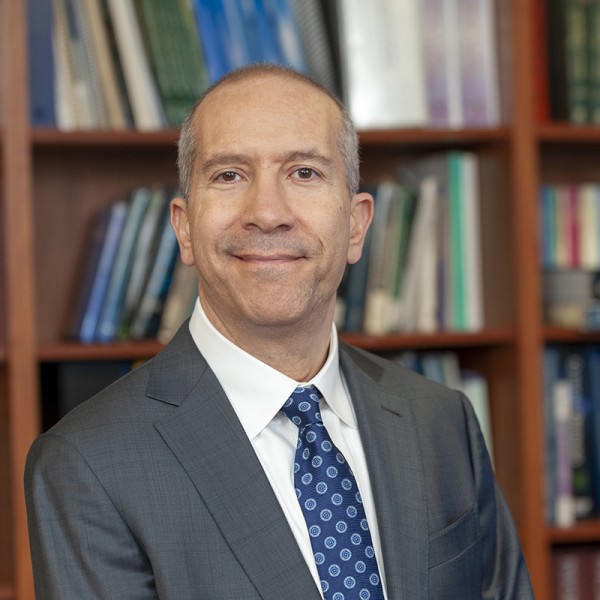
Smoking cigarettes is known to cause at least 12 different types of cancer — not only lung cancer and head and neck cancers, but cancers of the esophagus, pancreas, bladder, colon, rectum, cervix, and more.
Research has shown that quitting tobacco use immediately improves health, including in people who have been diagnosed with cancer.
We spoke with psychologist Chris Kotsen, PsyD, CPAHA, Associate Director of the Tobacco Treatment Program at Memorial Sloan Kettering Cancer Center (MSK), about what you should know about tobacco treatment programs and why it’s important to quit smoking now — whether or not you have been diagnosed with a smoking-related cancer.
It’s Never Too Late to Quit Using Tobacco
If you are a person who uses tobacco and has been diagnosed with cancer, it’s not too late to quit. Smoking during cancer treatment has been linked to shorter survival, increased complications from treatment, and poorer quality of life compared with outcomes in those who do not smoke. The opposite is true for people who quit: They tend to have fewer treatment complications, live longer, and have a better quality of life.
People who are able to stop using tobacco:
- Usually recover from surgery more quickly and with fewer complications.
- Have lower side effects of chemotherapy and radiation, including infections and problems involving the heart, breathing, and digestion.
- Have improved lung function, appetite, sleep, energy, and emotional well-being — all things that are especially important during cancer treatment.
Smoking is especially risky for people with cancer. “Continued tobacco use can also put you at a greater risk of the cancer coming back after treatment, as well as a greater risk of developing a new primary cancer,” Dr. Kotsen says.
Quitting Tobacco With Support From a Program Is Easier and More Successful Than Attempting to Quit on Your Own
Support to Quit Smoking at MSK
According to the Truth Initiative, a U.S. nonprofit focused on helping to end nicotine addiction, nearly 70% of smokers say they want to quit. But most attempts are not successful. Studies show the typical 40-year-old smoker may make 20 serious quit attempts before permanently quitting.
“You wouldn’t ask someone with cancer or another disease like diabetes or a heart condition to treat themselves,” Dr. Kotsen says. “So why should someone with a tobacco addiction be expected to quit without benefitting from the latest and most effective treatments?”
He wants to send the message that tobacco treatment programs like MSK’s are proven to help people quit and are more effective than going it alone.
MSK’s Tobacco Treatment Program focuses on two main areas: counseling and medication.
Counseling Provides Psychological Support for People Who Want to Quit Smoking
MSK’s program offers many counseling options for people who want to quit smoking, including individual therapy and group counseling sessions led by a tobacco treatment specialist. Patients can participate by telehealth (video conference or phone) in the comfort of their own homes.
“People come from all over the country to be treated at MSK, and telehealth has greatly increased our ability to help patients wherever they live,” Dr. Kotsen says. “Thanks to new policies that allow psychologists to practice telehealth across state lines, myself and another MSK psychologist, Jae Ross, PsyD, are licensed to offer telehealth treatment services to patients in 42 states.”
Medication Helps Relieve Symptoms of Nicotine Withdrawal
Two types of medications are approved by the U.S. Food and Drug Administration (FDA) for tobacco cessation.
There are nicotine replacement therapies, which help lower nicotine cravings and take the edge off withdrawal symptoms. They include:
- patch
- nasal spray
- lozenge
- gum
- inhaler

And there are pill medications that can lower cravings while also alleviating symptoms of withdrawal, such as anxiety, depression, increased appetite, and irritability. These medications, which require a prescription, are varenicline (Chantix®) and bupropion (Zyban/Wellbutrin®).
Studies have shown that using medications in combination with counseling, even briefly, can double your chances of quitting for good, Dr. Kotsen says. And when used in combination with MSK’s best practices for behavior change through counseling, medications can easily quadruple quit rates, compared with trying to quit without professional assistance.
A big part of that difference is MSK’s tobacco treatment specialists, who ensure that patients use these medications the right way while also working with them on new routines and behavior changes during the quitting journey. Almost all cessation medications can be used safely and effectively by patients undergoing cancer treatment. Additionally, their cost is usually covered by health insurance.
Vapes (E-Cigarettes) Are Not an Effective Tool for Quitting Smoking
“Some people may try to use e-cigarettes to quit smoking, but the latest guidelines from the National Comprehensive Cancer Network, issued in 2024, recommend combining behavior therapy with FDA-approved medications instead,” Dr. Kotsen says. He adds that most of these FDA-approved medications have been used for the past 20 to 40 years and have been shown to be safe and highly effective.
Research at MSK Is Making Tobacco Treatment Programs More Accessible and Effective for People of All Backgrounds
Patterns of tobacco use vary across different groups. Menthol cigarettes, for example, have historically been aggressively marketed to Black and Hispanic communities, and studies have shown addiction to menthol cigarettes may pose a higher cancer risk. The specialists in MSK’s Tobacco Treatment Program are researching new ways of making tobacco treatment programs more effective and accessible for everyone.
One recent study from MSK, published in April 2024 in JAMA Network Open, found it helps to standardize assessment of tobacco use and normalize referrals to tobacco treatment in people recently diagnosed with cancer. Making these programs “opt-out” rather than “opt-in” — meaning that patients were automatically referred regardless of whether they said they were ready to quit — led to Black and Hispanic patients participating at the highest rates, compared with white, Asian, and non-Hispanic patients.
“These kinds of automatic referral programs can also help reduce stigma and systems barriers,” Dr. Kotsen says. “Moreover, we have many patients with limited English proficiency, and we treat them in their own language with the assistance of interpreters and translated patient education materials.”
MSK currently offers individual counseling to Spanish-speaking patients, with group tobacco treatment programs for Spanish-speaking patients coming soon.
MSK investigators also have researched how tobacco companies target the LGBTQ+ community and have developed specific efforts to focus on helping these patients quit smoking.
Treatment Is Available Throughout Your Cancer Journey
MSK’s Tobacco Treatment Program is open to all current and former patients — including those seeking cancer screening, those who are newly diagnosed and undergoing cancer treatment, and those who have completed treatment.
Treatment is also available to family members of MSK patients.
“Many patients who smoke have at least one member in their household who also smokes or uses tobacco products,” Dr. Kotsen says. “As you can imagine, success rates in quitting are higher if someone in the family is able to overcome their tobacco addiction and quit simultaneously or sequentially.”

